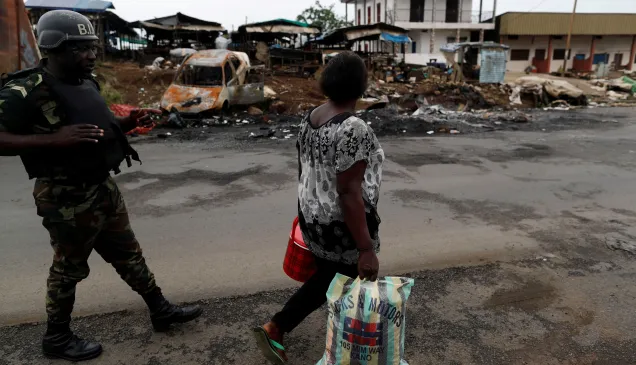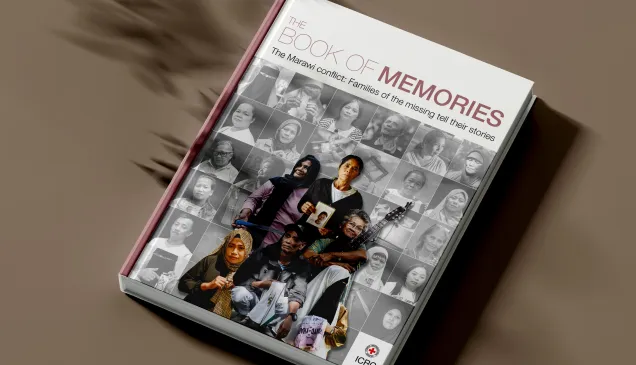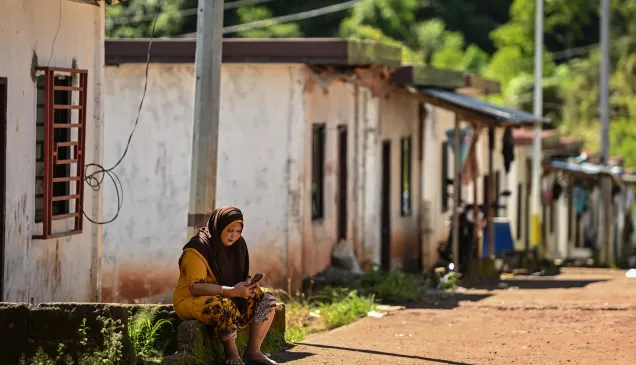Philippines: Aid reaches far-flung communities in Agusan del Sur
On August 4, a team of 10 ICRC and Philippine Red Cross staff and volunteers from the Agusan del Sur chapter set out to travel 50 kilometers from San Luis town to Sitio Tumalog in Barangay Zillovia, Talacogon, Agusan del Sur. The aim was to assist 116 families who have been displaced since May due to armed violence. In the beginning, these families lived with relatives but due to their prolonged stay, some of them started building makeshift shelters near the barangay center in Tumalog, an upland sitio.
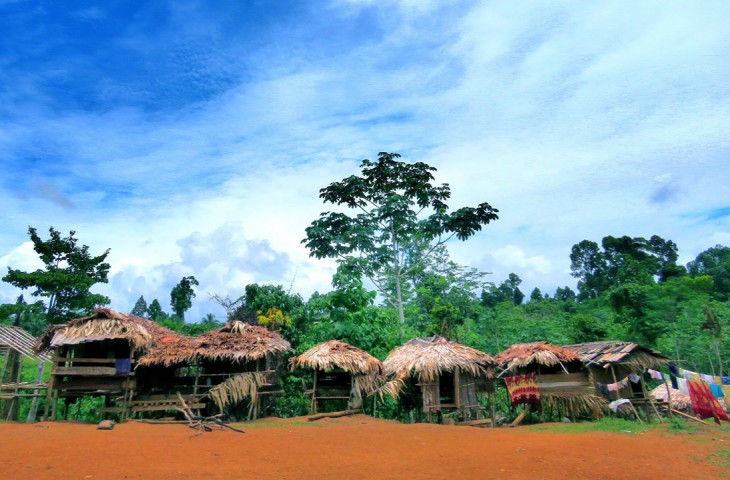
Some displaced families live in makeshift shelters in a vacant lot near a school in Sitio Tumalog. Many of them started building their own shelters as they did not want to become too dependent on their relatives. CC BY-NC-ND / ICRC / R.Ang
Along with two trucks carrying food and essential household items, the team went onboard Red Cross vehicles at around 6 a.m. More than an hour later, the team reached Barangay Mahayahay, which is 30 kilometers from San Luis. However, they could not go further due to the muddy roads caused by rains the previous night. Despite the distance and difficult road conditions, the team pressed on by renting local motorbikes or "habal-habal" to overcome the muddy roads and be able to reach Sitio Tumalog. The trucks were left behind in Barangay Mahayahay as the roads were impassable for large vehicles.
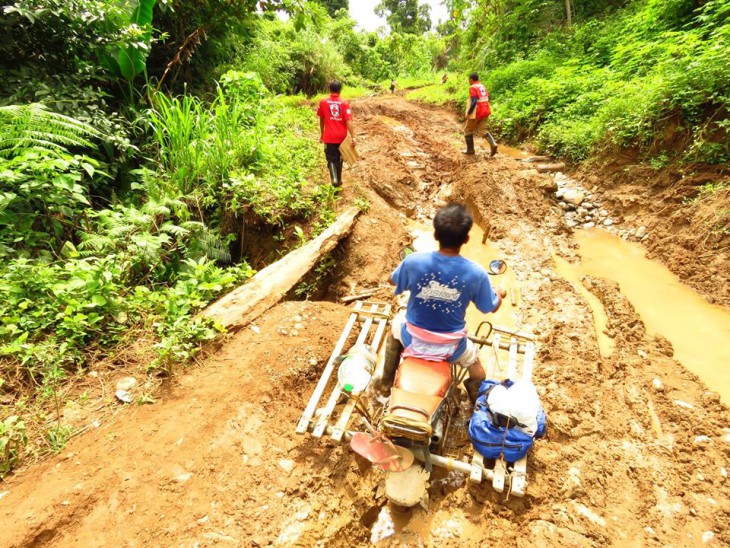
In situations like these, only motorbikes or habal-habal could manage the muddy roads like the one in the picture. The team experienced four motorcycle-stumbling incidents during the trip toward Sitio Tumalog, which is 50 km from San Luis town. CC BY-NC-ND / ICRC / R.Ang
Adapting to the situation, the ICRC-PRC team had to change plans. Upon reaching the barangay center in Sitio Tumalog, the ICRC-PRC team relayed to the affected families the difficulty for the trucks to reach the sitio; and that the aid distribution would be held in Barangay Mahayahay.
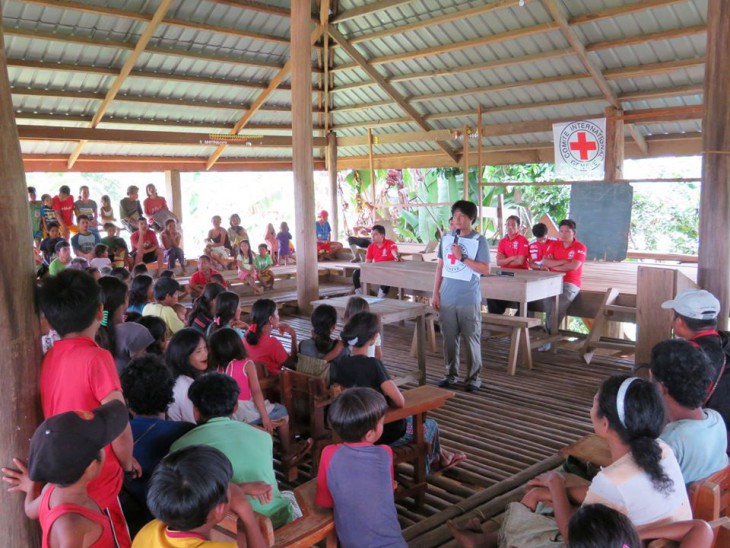
Upon reaching Sitio Tumalog, an ICRC field officer explains to the affected families the registration process and Plan B for the new distribution site. CC BY-NC-ND / ICRC / R.Ang
Thanks to their knowledge of the terrain, some affected families used footpaths and reduced their travel time downhill to Barangay Mahayahay. At least 40 families arrived in the early evening at the distribution site. They spent the night onsite after receiving the aid before returning to their temporary shelters the next day, an uphill walk of about 8 kilometers. The relief distribution continued the next morning for the rest of the beneficiaries. The beneficiaries came from the towns of San Luis and Talacogon in Agusan del Sur. They included the family of 20-year-old Nisa Pabiana of Sitio Insibay in Talacogon.
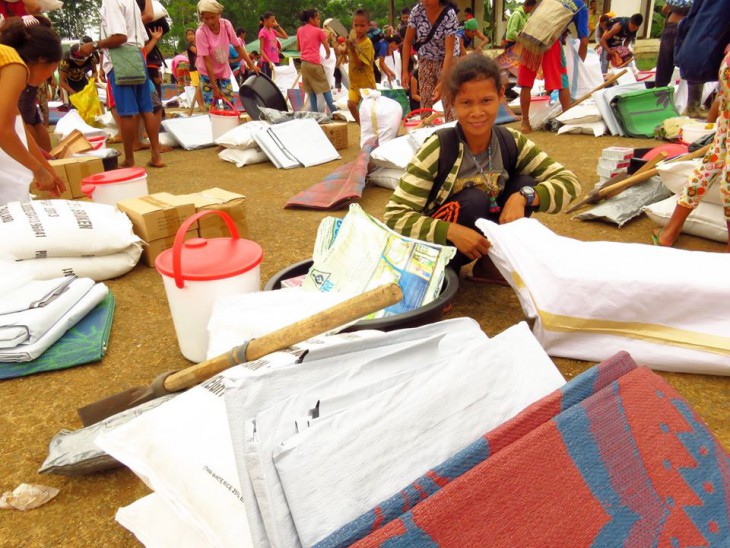
"After more than two months in the evacuation center, this aid will greatly improve our living condition. It would mean decent food for us, a roof over our head, and a chance to live better," Nisa said. CC BY-NC-ND / ICRC / R.Ang
To assist the affected families in their prolonged displacement, the ICRC and PRC distributed food rations consisting of 50 kilograms of rice, 2 liters each of oil and soy sauce, 1 kilogram salt, 24 tins of sardines, and 2 kilograms of sugar, and ready-to-eat compact food for children. The rations are sufficient for a family for one month. Essential household items such as mats, mosquito nets, blankets, collapsible jerry cans, plastic buckets and basins, and hygiene items were also given. Shelter repair kits and shelter-grade tarpaulins were provided as well to help them improve their makeshift houses while they could not yet return to their homes.
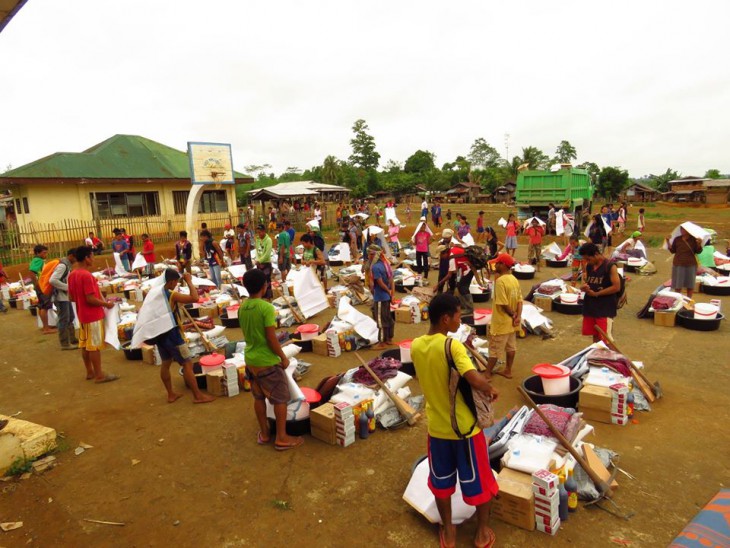
The displaced families prepare to bring back to the evacuation center the assistance they received. The aid aims to augment the support from the local government, and to help the affected families regain their self-sufficiency. CC BY-NC-ND / ICRC / R.Ang
"Access can oftentimes be difficult and poses challenges to humanitarian aid, but it should never be a reason for us to stop trying from reaching these far-flung communities," said Yann Fridez, head of ICRC sub-delegation in Mindanao.

